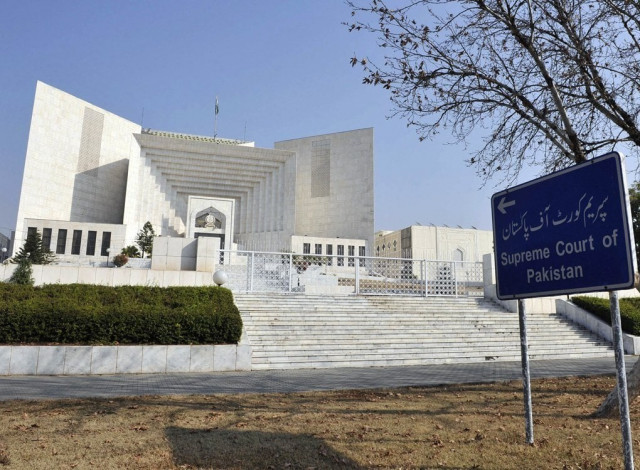PTI readies review plea against SC April 7 order
Claims apex court verdict based on ‘errors floating on surface’

The PTI on Saturday prepared a review plea against the top court’s April 7 verdict that set aside National Assembly Deputy Speaker Qasim Suri’s ruling of dismissing the opposition’s no-confidence resolution against Prime Minister Imran Khan. However, it is learnt that the SC registrar has yet to receive the plea.
PIT leader Babar Awan and Advocate Mohammad Azhar Siddique have prepared the review petition. It has named the PPP, PML-N, Supreme Court Bar Association, Sindh High Court Bar Association and the Sindh Bar Council as respondents.
The plea has been sent to the apex court and would be processed on the next working day as offices had closed early because of Ramazan. The petition asked the Supreme Court to "kindly review, recall and set aside the impugned order dated April 7 which is based on errors floating on the surface".
It also asked the apex court to suspend the operation of the impugned order.
It contended that the SC’s order in the absence of detailed reasons was not a judicial determination according to Article 184(3) of the Constitution, which stated that the issue needed to be of public importance for the court to have its jurisdiction on it.
It also argued that the top court could not forcibly direct the discharge of constitutional obligations by the holders of constitutional posts under the Constitution.
It added that giving a timetable for how the National Assembly session should proceed and dictating the speaker to act in a particular manner was tantamount to interfering in the affairs of the lower house of parliament.
The review plea also contended that the SC had "erred" by not announcing any verdict in the presidential reference seeking the court's opinion on Article 63A of the Constitution.
It argued that the SC had "erred" to appreciate the Constitution's provisions that barred the apex court from interfering in the proceedings of parliament or holding officials including the president, prime minister, speaker and deputy speaker answerable to the court, including in the exercise of their discretionary powers.
It added that the SC had “erred” to appreciate that within the proceedings of the house, parliament was “sovereign, independent and not amenable to the jurisdiction of the Supreme Court or any other court”.
Read NA session deciding fate of PM Imran finally resumes
The petition defended the deputy speaker's action, saying that his ruling was meant to enforce Article 5 of the Constitution and thus the court's verdict of setting it aside needed to be reviewed.
On the opposition's no-confidence motion, it argued that it had "lapsed due to afflux of time" and therefore any direction on it was "a direct violation of the stated mandate of the Constitution".
It added that the procedure for a no-confidence vote was elaborately provided in the Constitution therefore "the honourable apex court is not entitled to micro-manage the affairs of parliament”.
The Supreme Court on April 3 set aside the deputy speaker’s ruling of dismissing the no-trust resolution against PM Imran and the subsequent dissolution of the lower house of parliament by President Arif Alvi on the premier’s advice.
The five-zero ruling ordered parliament to reconvene on Saturday, saying that the session could not be prorogued without the conclusion of the no-trust motion against PM Imran.
The court had noted that the prime minister could not have advised the president to dissolve the assembly as he continued to remain under the bar imposed under Clause (1) of Article 58.
The court’s verdict restored the prime minister and his cabinet to their positions.
"The deputy speaker gave a ruling on April 3. Leave was granted on the no-confidence motion on March 28. The ruling of the speaker is declared unconstitutional," declared Chief Justice of Pakistan Umar Ata Bandial, who was heading a five-judge larger bench, which also comprised Justice Ijazul Ahsan, Justice Mohammad Ali Mazhar, Justice Munib Akhtar and Justice Jamal Khan Mandokhail.



















COMMENTS
Comments are moderated and generally will be posted if they are on-topic and not abusive.
For more information, please see our Comments FAQ